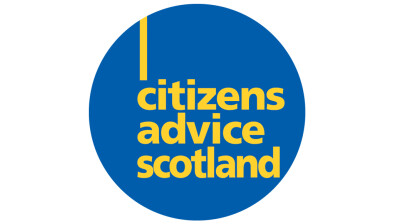CAS calls on government to put housing at heart of post-COVID economic recovery
Citizens Advice Scotland (CAS) has put energy efficient housing investment and the Warm Home Discount at the heart of its proposals for Scotland’s post-COVID economic recovery.

Derek Mitchell
In its submission to the Scottish Government’s Advisory Group for Economic Recovery, the charity outlines a series of measures aimed at eliminating poverty and helping workers.
According to CAS, increasing and fast-tracking investment in energy efficient housing will create jobs, cut energy bills and reduce carbon emissions.
The submission reads: “In housing, the loss of regular employment has led to arrears mounting up for housing costs. Many renters are at risk of eviction due to rent arrears caused by the crisis, particularly once emergency measures expire. Some homeowners could be subject to possession orders.
“Those currently in temporary accommodation risk returning to rough sleeping unless pathways into permanent accommodation are put in place now. Homelessness is not just devastating for the individual household affected, but also a big cost to the public sector as well.
“It is unlikely that we will emerge from this crisis without many people in significant rent arrears. Radical thinking is required to find solutions, and people’s homes cannot be prioritised over landlord or mortgage provider revenue.”
The charity has also called for existing support schemes like the Warm Home Discount to be redesigned to more effectively target people in need.
Other measures include:
- Developing a ‘new deal’ for people in low-paid jobs which have been revealed as essential during COVID-19;
- Making state support for business contingent on fair work principles and using it to encourage recruitment and training opportunities in deprived communities;
- Writing off old local government debt like council tax arrears over 5 years old that cannot be realistically recovered; and
- Giving consideration to a Minimum Income Guarantee.
Publishing the submission, CAS chief executive Derek Mitchell said: “The economic fallout from COVID-19 will be hugely challenging for Scotland, and it’s essential that steps are taking to maximise incomes and minimise the cost of living for people. Making sure people have enough to live on must be an essential part of ensuring inclusive economic growth.
“That’s why our recommendations to the Scottish Government’s Advisory Group put these principles front and centre. With further investment in energy efficient housing and re-designing the Warm Homes Discount, we want to see action to bring down energy costs for people while we try and meet the challenge of net zero.
“A new deal of better pay and conditions for working people, especially key workers whose work has been revealed as essential during coronavirus, will also be vital. We’d encourage policy-makers to be bold and explore the options for a Minimum Income Guarantee.
“People who are burdened with making challenging debt repayments cannot fully participate in the economy, which then holds back growth. That’s why we think old local government debts such as council tax or rent should be written off. For example debts over 5 years old, where further recovery action is pointless, should be cancelled altogether, and payments spread very thinly for more recent debts, to allow people to prioritise their current payments and recover their financial wellbeing.
“In the decade following the 2008 financial crisis the Citizens Advice network unblocked £1.3 billion in financial gains for people in Scotland. We’ll be there again to help people through the stormy waters ahead, and we hope policy-makers recognise that investing in people is the right approach to generating inclusive economic growth.”
- Read all of our articles relating to COVID-19 here.







